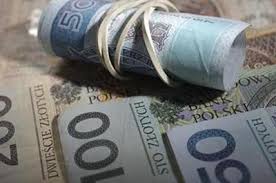Wednesday, 11 March 2015 20:24
 BUDAPEST: Central European government bonds and currencies rebounded on Wednesday after a sharp fall in the previous session when a surge in the dollar made some investors rearrange positions.
BUDAPEST: Central European government bonds and currencies rebounded on Wednesday after a sharp fall in the previous session when a surge in the dollar made some investors rearrange positions.
The European Central Bank’s asset buying in the euro zone could create additional demand for Central European government bonds as well. But some investors dumped the region’s bonds on Tuesday, finding US Treasuries more attractive.
“The ECB and the US factors struggle with each other and Europe still has the Greek debt problem… volatility will stay,” one Budapest-based currency dealer said.
Hungary’s forint firmed 0.8 percent against the euro by 0922 GMT and Poland’s zloty gained half a percent. Both units shed about one percent on Tuesday.
Hungary’s 10-year benchmark government bond yield dropped 3 basis points to 3.46 percent, after Tuesday’s 20 basis point jump. Poland’s corresponding yield, which peaked at 2.63 percent on Tuesday, was flat at 2.46 percent.
“The 10-year Hungarian yield rose 50-60 basis points (in the past days) and is becoming attractive again,” one trader said.
Another trader said some investors got also worried on Tuesday by the shutting down of a third brokerage by supervisors due to regulatory shortcomings.
Some feared this could affect Hungary’s budget and credit rating, but that was unfounded, the trader said.
An additional factor that may lift bond prices and weigh on currencies in the region is the expectation that some central banks could continue to ease monetary conditions.
Hungary and Romania’s central banks are expected to cut interest rates further late this month.
Euro zone member Slovenia’s 10-year bond yield dropped 7 basis points to a record low 0.849 percent. Czech interest rates are even lower but demand at a government bond auction still leaped to more than triple the offer.
“It is definitely partially the effect of QE (ECB asset buying),” Komercni Banka trader Dalimil Vyskovsky said of the auction’s demand.
The Czech crown, which often decouples from regional trends, stayed off this week’s regional currency wobbles and traded flat against the euro at 27.291.
The Czech central bank’s Governor Miroslav Singer said late on Tuesday that the bank was ready to move the floor for the crown exchange rate at 27 to a weaker level if there is a threat of deflationary pressures.
Copyright Reuters, 2015



























